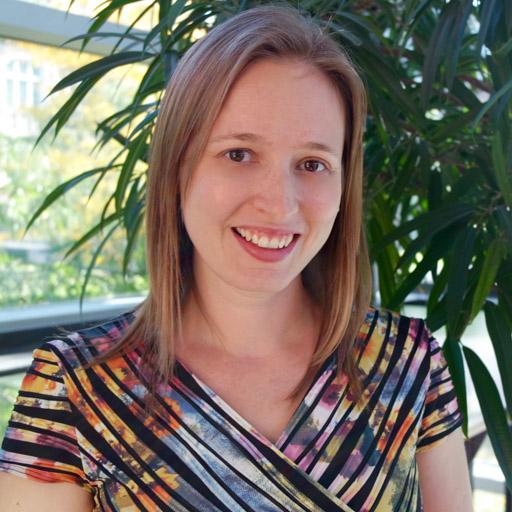
Krista Byers-Heinlein, PhD
Thesis supervisor Accepting inquiries
- Professor, Psychology
- Concordia University Research Chair in Bilingualism and Open Science
Are you the profile owner?
Sign in to editThesis supervision details
Supervised programs: Psychology (MA), Psychology (PhD)
Research areas: language acquisition; bilingualism; infancy & childhood; language disorders; development
Contact information
Email:
Website:
Biography
Education
PhD (University of British Columbia)
Research interests
My research investigates infant development, with a focus on language acquisition. I use primarily behavioral methods such as eye tracking, looking-time, sucking, and reaching measures. I am particularly interested in infants growing up in bilingual environments and the mechanisms that they use to acquire two languages simultaneously. Some current projects compare speech perception and word learning in monolingual and bilingual infants. A related line of work investigates bilingual parenting, and how the language strategies used by bilingual families influence children’s language learning. We are now using our findings to detect bilingual children at risk for language impairment and delay. I also have a strong interest in and commitment to large-scale collaborations and Open Science.
I welcome e-mails from prospective MA and PhD students interested in applying to admission to the research training program, who have interests in early bilingualism and Open Science. Please get in touch well before our December 1st deadline.
Teaching activities
PSYC 311
Research Methods II
PSYC 431
Infancy
PSYC 333
Lifespan Development
PSYC 726
Graduate seminar in bilingualism
Selected publications
For a full list of publications click here
Sander-Montant, A., López Pérez, M., & Byers-Heinlein, K. (2023). The more they hear the more they learn? Using data from bilinguals to test models of early lexical development. Cognition, 238, 105525. https://doi.org/10.1016/j.cognition.2023.105525 Repository: https://osf.io/2m345/ Preprint: https://psyarxiv.com/zd3m8/
Quirk. E., Brouillard, M., Ahooja, A., Ballinger, S., Polka, L. Byers-Heinlein, K., & Kircher, R. (2023) Quebec-based parents’ concerns regarding their children’s multilingual development. International Journal of Multilingualism. https://doi.org/10.1080/14790718.2023.2184475 Preprint: psyarxiv.com/583ge Repository: https://osf.io/tnb23/
Kremin, L.V., & Byers-Heinlein, K. (2021). Why not both? Rethinking categorical and continuous approaches to bilingualism. International Journal of Bilingualism. https://doi.org/10.1177/13670069211031986 Preprint: https://psyarxiv.com/nkvap
Byers-Heinlein, K., Tsui, S. A., Bergmann, C., et al. (2021). A multi-lab study of bilingual infants: Exploring the preference for infant-directed speech. Advances in Methods and Practices in Psychological Science. [Registered Report]. January 2021. https://doi.org/10.1177/2515245920974622 Preprint: https://psyarxiv.com/sqh9d/ Repository: https://osf.io/zauhq/
Orena, A.J., Byers-Heinlein, K., & Polka. L. (2020). What do bilingual infants actually hear? Evaluating measures of speech input to bilingual-learning 10-month-olds. Developmental Science, 23:e12901. https://doi.org/10.1111/desc.12901. Preprint: https://psyarxiv.com/2qnhw
Schott, E., Rhemtulla, M., & Byers-Heinlein, K. (2019). Should I test more babies? Solutions for transparent data peeking. Infant Behavior and Development, 54, 166-176. https://doi.org/10.1016/j.infbeh.2018.09.010. Repository: https://osf.io/qjx7t/
Byers-Heinlein, K., Morin-Lessard, E., & Lew-Williams, C. (2017). Bilingual infants control their languages as they listen. Proceedings of the National Academy of Sciences, 114(34), 9032–9037. https://doi.org/ 10.1073/pnas.1703220114 Repository: https://osf.io/htn9j/
Byers-Heinlein, K. (2013). Parental language mixing: Its measurement and the relation of mixed input to young bilingual children’s vocabulary size. Bilingualism: Language and Cognition, 16(1), 32–48. https://doi.org/10.1017/S1366728911000010
Byers-Heinlein, K., Burns, T.F., & Werker, J.F. (2010). The roots of bilingualism in newborns. Psychological Science, 21, 343–348. https://doi.org/10.1177/0956797609360758 Postprint: https://psyarxiv.com/hfsrk/ Repository: https://osf.io/9shr7/

